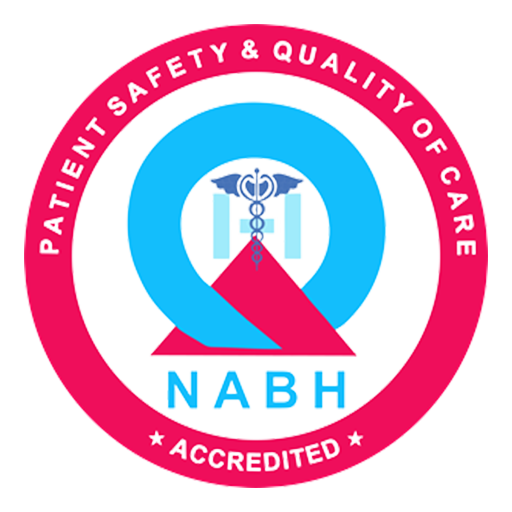Introduction:
Dealing with piles, also known as hemorrhoids, can be an uncomfortable and sometimes embarrassing experience. One of the most common concerns for those suffering from this condition is how it affects their daily bodily functions, particularly bowel movements. In this comprehensive guide, we’ll explore the ins and outs of piles, addressing the burning question: “Can you still poop with piles?” We’ll delve into the nature of this condition, its impact on your digestive system, and provide valuable tips for managing your symptoms effectively.
Whether you’re seeking the best piles treatment in Kota or looking for a reputable piles specialist doctor in Kota, this article will equip you with the knowledge to make informed decisions about your health. From understanding the causes and symptoms to exploring various treatment options, including painless piles surgery in Kota, we’ve got you covered.
Understanding Piles (Hemorrhoids):
What are piles?
Piles, medically termed hemorrhoids, are swollen blood vessels in and around the anal canal. These blood vessels can become enlarged and inflamed due to various factors, causing discomfort and sometimes pain. Piles can be internal (inside the rectum) or external (outside the anus), and their severity can range from mild to severe.
For those seeking treatment, it’s crucial to consult with a piles specialist in Kota or visit the best piles hospital in Kota for an accurate diagnosis and personalized treatment plan.
Causes of piles:
Several factors can contribute to the development of piles:
1. Chronic constipation or diarrhea
2. Straining during bowel movements
3. Prolonged sitting, especially on the toilet
4. Lack of fiber in the diet
5. Pregnancy and childbirth
6. Obesity
7. Heavy lifting
8. Aging, as tissues become less supportive
Understanding these causes can help in prevention and guide you towards the best piles treatment in Kota suitable for your specific situation.
Symptoms of piles:
The symptoms of piles can vary depending on their location and severity. Common signs include:
1. Bright red blood during bowel movements
2. Itching or irritation in the anal area
3. Pain or discomfort, especially when sitting
4. Swelling around the anus
5. A lump near the anus, which may be sensitive or painful
6. Leakage of feces
If you experience these symptoms, it’s advisable to consult a proctologist in Kota or visit the best fissure hospital in Kota for a proper evaluation.
Can you still poop with piles?
The short answer is yes, you can still have bowel movements when you have piles. However, the experience may be different and sometimes challenging. Piles can make the process of defecation uncomfortable and even painful in some cases.
Impact of piles on bowel movements:
Piles can affect your bowel movements in several ways:
1. Pain during defecation: The pressure exerted during a bowel movement can cause pain or discomfort, especially if the piles are inflamed.
2. Bleeding: You may notice bright red blood on the toilet paper or in the bowl after a bowel movement.
3. Incomplete evacuation: The presence of piles might create a sensation of fullness, making you feel like you haven’t completely emptied your bowels.
4. Constipation: Fear of pain might lead to holding back bowel movements, potentially causing constipation.
5. Mucus discharge: Piles can sometimes lead to mucus secretion, which may be noticeable after a bowel movement.
If these symptoms significantly impact your daily life, it’s time to consider visiting the best piles specialist doctor in Kota for professional advice and treatment.
Tips for pooping comfortably with piles:
While having piles can make bowel movements challenging, there are several strategies you can employ to make the process more comfortable:
1. Stay hydrated: Drink plenty of water to keep your stools soft and easier to pass.
2. Increase fiber intake: A high-fiber diet can help prevent constipation and reduce straining during bowel movements.
3. Don’t delay: When you feel the urge to go, don’t hold it in. Delaying can lead to harder stools and increased discomfort.
4. Use a squatting position: Elevating your feet on a small stool while on the toilet can help align your rectum for easier passage of stools.
5. Avoid straining: Take your time and avoid pushing too hard, as this can worsen piles.
6. Use moist wipes: Instead of dry toilet paper, use moist wipes to clean gently after a bowel movement.
7. Apply a cold compress: This can help reduce swelling and provide relief after a bowel movement.
8. Consider stool softeners: Under medical advice, using stool softeners can make bowel movements less painful.
9. Practice good hygiene: Keep the anal area clean and dry to prevent irritation and infection.
Certainly. I’ll continue with the remaining sections of the blog post:
Treatment options for piles:
When it comes to treating piles, there are various options available, ranging from home remedies to medical interventions. The best piles treatment in Kota will depend on the severity of your condition and your individual circumstances.
Home remedies:
1. Sitz baths: Sitting in warm water for 10-15 minutes, 2-3 times a day, can help soothe the affected area and reduce swelling.
2. Ice packs: Applying cold compresses can help numb the area and reduce inflammation.
3. Topical treatments: Over-the-counter creams, ointments, or suppositories containing hydrocortisone or witch hazel can provide relief from itching and pain.
4. Dietary changes: Increasing fiber intake and staying hydrated can help soften stools and reduce strain during bowel movements.
5. Exercise: Regular physical activity can help improve circulation and reduce the risk of constipation.
6. Herbal remedies: Some people find relief using natural remedies like aloe vera or tea tree oil, but it’s important to consult with a healthcare professional before trying these.
Medical treatments:
For more severe cases, or when home remedies don’t provide sufficient relief, medical interventions may be necessary. The best piles hospital in Kota can offer various treatment options:
1. Rubber band ligation: A small elastic band is placed around the base of the hemorrhoid to cut off its blood supply, causing it to shrink and fall off.
2. Sclerotherapy: A chemical solution is injected into the hemorrhoid, causing it to shrink.
3. Infrared coagulation: This method uses infrared light to create scar tissue, cutting off the blood supply to the hemorrhoid.
4. Hemorrhoidectomy: Surgical removal of large or severe hemorrhoids. Many hospitals now offer painless piles surgery in Kota using advanced techniques.
5. Stapled hemorrhoidopexy: A surgical procedure that removes and staples the abnormal hemorrhoidal tissue back into place.
6. Laser treatment: Some facilities offer the best laser treatment in Kota for piles, which can be less invasive and have a quicker recovery time.
It’s crucial to consult with a piles specialist doctor in Kota to determine the most appropriate treatment for your condition.
Prevention of piles:
While it’s not always possible to prevent piles entirely, there are several lifestyle changes and dietary recommendations that can significantly reduce your risk:
Lifestyle changes:
1. Avoid prolonged sitting: If your job requires long periods of sitting, take regular breaks to stand up and move around.
2. Exercise regularly: Physical activity helps improve circulation and can prevent constipation.
3. Practice good toilet habits: Don’t strain or sit on the toilet for extended periods.
4. Maintain a healthy weight: Excess weight can put pressure on the veins in your lower rectum.
5. Avoid heavy lifting: If you must lift heavy objects, be sure to use proper techniques to avoid straining.
6. Manage other health conditions: Conditions like high blood pressure can increase your risk of piles, so keep them under control.
Dietary recommendations:
1. Increase fiber intake: Aim for 25-30 grams of fiber per day from sources like fruits, vegetables, whole grains, and legumes.
2. Stay hydrated: Drink plenty of water throughout the day to keep your stools soft.
3. Limit processed foods: These often lack fiber and can contribute to constipation.
4. Include probiotics: Yogurt and other fermented foods can help maintain a healthy gut balance.
5. Avoid spicy foods: These can irritate hemorrhoids and worsen symptoms.
6. Moderate alcohol consumption: Excessive alcohol intake can lead to dehydration and harder stools.
Conclusion:
Living with piles can be challenging, but it’s important to remember that you’re not alone. Millions of people worldwide deal with this condition, and yes, you can still poop with piles, albeit with some potential discomfort. By understanding the nature of piles, implementing lifestyle changes, and seeking appropriate treatment, you can effectively manage your symptoms and improve your quality of life.
If you’re in Kota, Rajasthan, you’re fortunate to have access to some of the best piles treatment facilities in the region. From the best piles hospital in Kota to specialized proctology centers offering advanced treatments like laser surgery, there are numerous options available to suit your needs.
Remember, while home remedies and lifestyle changes can be effective for mild cases, it’s crucial to consult with a piles specialist doctor in Kota if you experience persistent or severe symptoms. They can provide a proper diagnosis and recommend the most suitable treatment plan, which may range from conservative management to painless piles surgery in Kota.
Don’t let embarrassment or fear prevent you from seeking help. With the right care and management, you can overcome the challenges of living with piles and enjoy a comfortable, healthy life. Whether you’re looking for the best chiranjeevi hospital in Rajasthan or seeking the top hospital in Kota for piles treatment, take the first step towards recovery by reaching out to a healthcare professional today.
Your digestive health is an essential part of your overall well-being, and you deserve to live without the discomfort and worry that piles can bring. With the information provided in this guide and the excellent medical facilities available in Kota, you’re well-equipped to take control of your health and find relief from piles.


